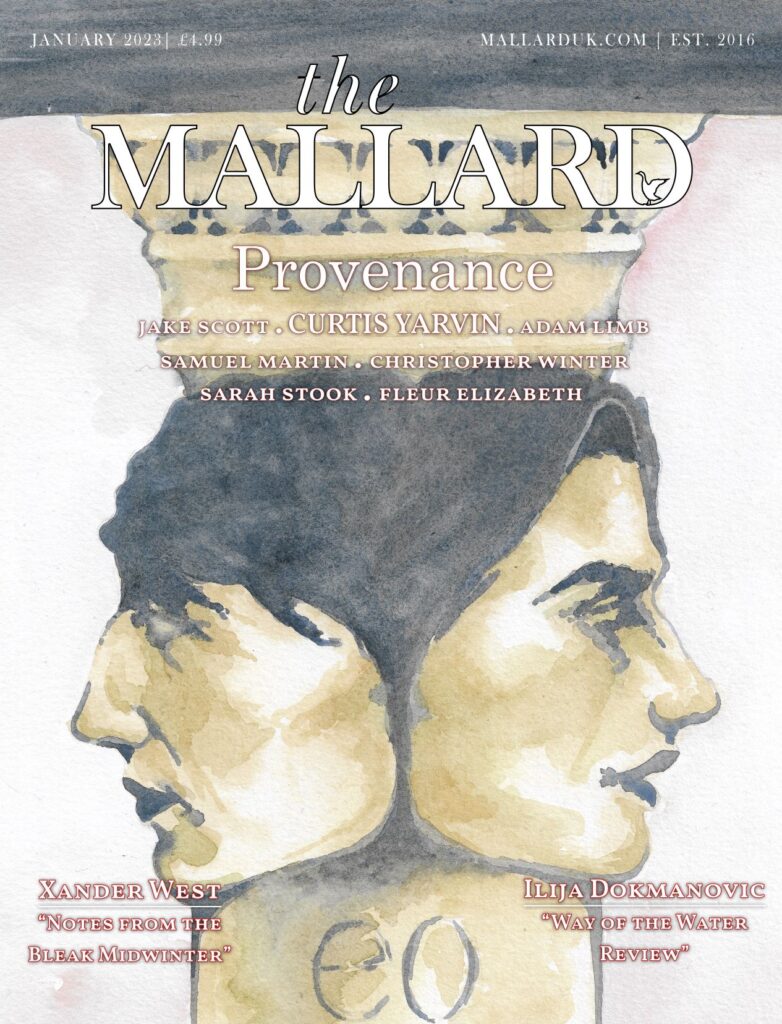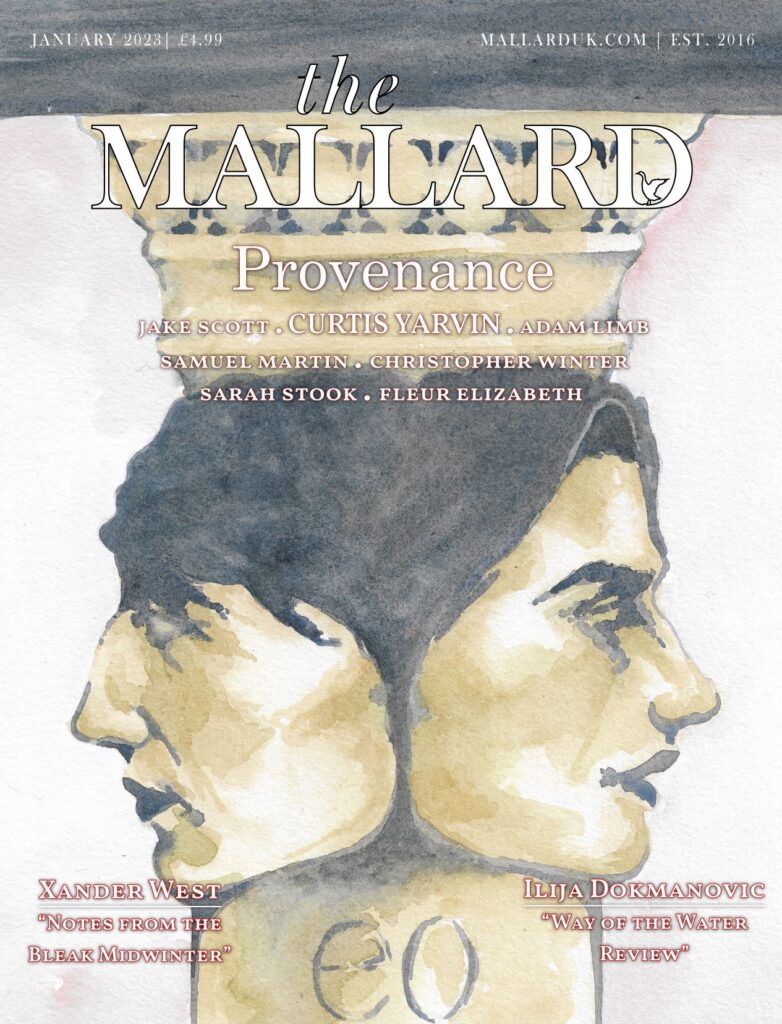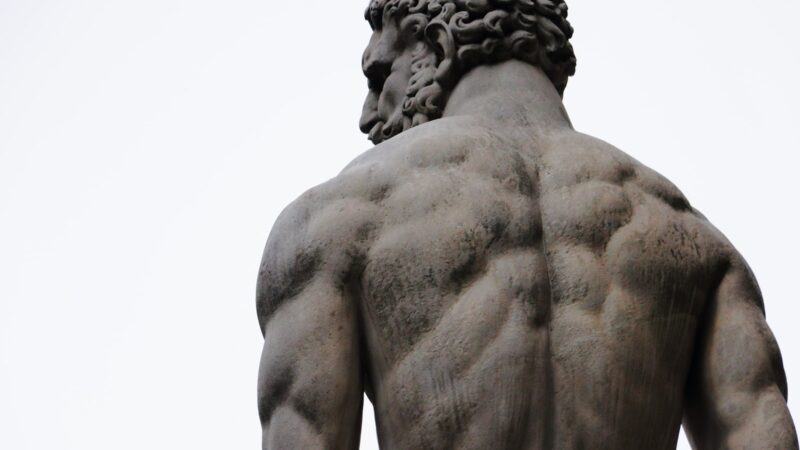It’s Over/We’re Back or: How I Learned to Stop Worrying and Love the Rollercoaster (Magazine Excerpt)
In short, the year started badly but was peppered with good moments. By mid-2022 it was going excellently, and I thought I was finally past the worst of what this year could throw at me. My hubris was rewarded with some of the worst few months of my life so far. I know that, in the grand scheme of things, I should be thankful for all that I have, and I certainly recognise that I have it much better than most people. It helps to remember that, but it doesn’t change how I felt and acted at the time.
I suppose that that is the nature of life and hindsight. At the time, these moments seemed to mean everything. They either crush your soul and spirit or bring you to the highest heights. I think that this sentiment is expressed quite well in the ‘it’s over/we’re back’ memes that have propagated themselves across my twitter timeline for the past few years. We outright refuse to recognise our own mundane victories and losses, and instead focus on the peaks and troughs – this is natural of course, we would go completely insane otherwise.
I don’t think it is bad to allow these experiences to hit you. Part of the human experience is to be hit by these ups and downs. It is the dwelling on these events that becomes a problem. Holding on to fading hurt and fleeting success instead of moving on in some sort of twisted nostalgia for our best and worst moments can lead us down a very dark and dangerous road. It makes us forget who we are and who we can be. Our lessons learnt, we should embrace the change and simply move on. It is in these moments that we grow and mature as people, and become a better version of ourselves.
For me personally, this year has been an absolute rollercoaster of highs and lows, and that has been very hard to deal with. Things seem to be better now, however, and I am filled with enthusiasm for what the new year can bring me. I think that 2023 will be an amazing time for personal growth and development. I still have a lot of weight to lose, but I am steadfast in my determination to see it through this year. Coming to terms with my situation and state of mind will not be easy, but life is not supposed to be easy. Nothing worth doing is easy.

This is an excerpt from “Provenance”. To continue reading, visit The Mallard’s Shopify.











To be Anti-Refugee is Un-British
I
Compassion for asylum seekers is a traditional British value – a real British value, not a Quango-invented value like ‘tolerance’ that wouldn’t be out of place in any Western European country.
Britain’s reputation as a friendly haven for the oppressed is wholly based in historical fact – and I don’t mean “we found the skeleton of a 15th century black man in Cornwall, and that’s why unfettered channel boat crossings are a good thing”.
Now to be clear: a refugee is not a migrant. Most channel crossers are economic migrants looking for wealth, which I am not here to defend nor discourage. When this article says “refugee”, I am referring to those fleeing war or persecution, such as Ukrainian civilians, Iranian political opposition, or Uyghur Muslims from China. And while I do not advocate handing out visas to all 21 million stateless refugees in the world today, it is my opinion that we should take in many more than we currently do – regardless of any policy towards other forms of migration – and make the United Kingdom the best and most welcoming place in the world to be a refugee. Not just for altruistic reasons either – we can greatly benefit from this arrangement.
From 1828 to 1905, at the height of her imperial power, the number of immigration restrictions the British Isles had was zero. The borders were completely flung open, allowing anyone who was downtrodden, oppressed, or impoverished the chance to live a life of freedom and security behind the protection of the Royal Navy.
This was a point of pride to the Victorians – the Times newspaper wrote in 1858;
All Europe knows and respects the asylum of these isles.”
The first wave of refugees from the continent – since the Huguenots – were the French clergy and nobility fleeing the Reign of Terror. Around 4,000 arrived in 1792, settling mostly in Soho and other affluent areas of London. They were forced to undertake manual labour for the first time in their lives, working as tailors or publishers. Due to a lack of Catholic churches in London at the time, Anglican churches such as Saint Pancras welcomed their brothers in Christ and offered church facilities for Catholic masses and burials. No fewer than eight former French bishops are interred at the church.
The Duchess of Gontaut wrote of her arrival to England;
Successful integration of refugees is surprisingly easy – give them the chance to work, and access to resources. Economic deprivation is the number one predictor for whether or not an ethnically diverse neighbourhood is socially coherent, but current policies make this nearly impossible; Refugees in Britain must wait 12 months after arrival before they have the right to employment.
Labour is the world’s most valuable commodity—yet for 12 months, a refugee is forced to relax in a four-star hotel and eat free chef-prepared meals, all paid for by taxpayers. The faster a refugee can obtain a job, the faster they can be turfed out of hotels and become productive members of society.
II
The Victorians were so committed to the policy of free asylum that they were even willing to create diplomatic scuffles to uphold it.
In the mid-century came the socialists. Marx, Engels, Kropotkin and co. all escaped harassment from tyrannical European governments by making the free and prosperous shores of Britain as their home.
In 1858, a collection of these continental anarchists based in a London lodging house plotted a failed assassination of Napoleon III. One man who stood trial for this conspiracy was French exile Simon François Bernard. The French government demanded he be punished – but the British press were steadfast in their opposition to a conviction. Partly because it would undermine the policy of open borders (some things never change), but also because anything that frustrated our eternal rivals was surely a good thing.
While I don’t suggest we invite any Islamic terrorist groups to set up an embassy in Fitzrovia, we can learn from this example to forge our modern-day policy on political refugees.
I and many readers of The Mallard yearn for a restoration of Britain’s prestige on the world stage, a way for our now Empireless nation to regain that global reach. So what could be more of a leverage over our enemies than aiding those who are consistently a thorn in their side?
Several Hong Kong dissidents such as Nathan Law have already fled here and continue to campaign for a free Hong Kong from the safety of the UK. We could extend this to other Chinese, Iranian, or Russian political dissidents, and be the first port of call for Governments-In-Exile. Provided that they do not actively harm British or Western interests, we can only gain geopolitically by being the prime destination for exiled activists the world over.
III
The open borders policy came to an end at the start of the 20th century. The last wave of refugees were impoverished Poles and Jews escaping persecution from the Russian Empire. One such refugee named Israel Lipski was hanged in 1887 for the murder of a woman in Whitechapel, and the story gave rise to the notion of “pauper aliens” committing crimes, stealing jobs, and pushing up rents.
The Conservative government of the day proposed the first restrictions on immigration in 1902. But they weren’t completely without opposition – it was none other than Winston Churchill who said these new rules were;
And Churchill was right. Even today (despite eye-catching headlines) the effect refugees have on the crime rate is low. During the 2015 European migrant crisis, Germany took in over 1.4 million refugees – yet by 2019, their crime levels had fallen to the lowest in thirty years.
And if a refugee does commit a crime, surely the only person who should be punished is the guilty refugee – not the thousands of other innocent, law-abiding evacuees with whom they arrived alongside.
Nonetheless, the Aliens Act introduced the first restrictions in 1906; immigrants were required to prove they could support themselves financially, not be “liable to become a charge upon the public rates” (i.e. disabled), and have a clean criminal record.
IV
But this was not the end for Britain’s role as an international safe haven for the oppressed. During the Great War, almost 250,000 Belgian refugees were given shelter on these isles, all housed and fed for the duration of the war despite the hardships and food shortages suffered by the nation. The generosity displayed by the British is illustrated in the 1916 Fredo Franzoni painting “Landing of the Belgium Refugees”, showing dozens of boats carrying huddled masses landing in Kent. They are being welcomed by a large crowd led by the mayor of Folkestone. To the side, a nurse stands ready to tend to the sick, while two children bear welcoming gifts. A British ensign flies prominently from one of the ships.
Many of the Belgians were housed by individuals volunteering a spare room. Others were housed in purpose-built villages ran by the Belgian government-in-exile, where inhabitants used Belgian currency and spoke Flemish. Despite some local objections to these ethnic enclaves, within a year of the war being over, 90% of refugees had returned to Belgium. Their only lasting impact being a few memorial plaques, and Agatha Christie’s Hercule Poirot – who was based on a Belgian that Christie had housed during the war.
If we could do it in 1914 during total war, we can certainly do it today.
Granted, the cultural differences between a Brit and Belgian are smaller than a Brit and a Syrian, or an Iranian, or a Venezuelan. But those of you who are worried about the social and ethnic composition of Britain needn’t worry about refugees – like the Belgians, the average refugee spends less than ten years in exile before returning to their native country, and only the most protracted conflicts such as in Afghanistan or Vietnam produce refugees who stay longer than 20 years. Those who choose to stay permanently are clearly integrated Anglophiles who prefer British society over the land most of their compatriots have since returned to.
Overall, while you and I may disagree on general high or low skill migration into Britain, it’s quite clear that compassion for asylum seekers is a long-forgotten tradition that we should reclaim. We can learn from the 19th century to build an asylum system that is both economically and geopolitically a benefit to us – as well as, of course, being the moral thing to do.
Photo Credit.